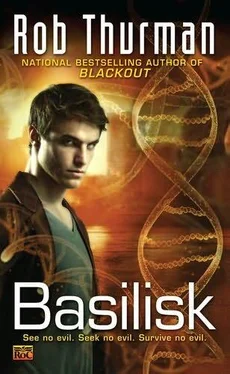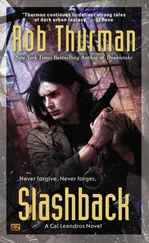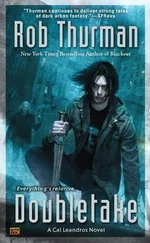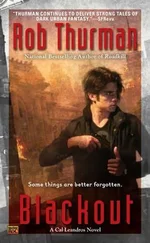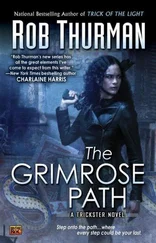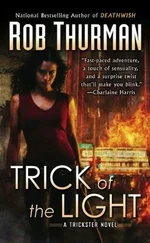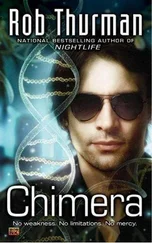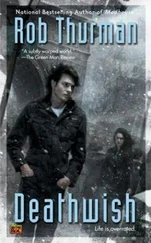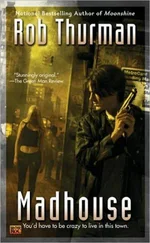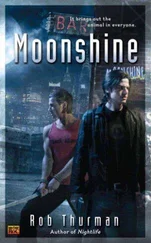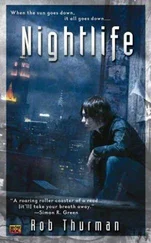Rob Thurman - Basilisk
Здесь есть возможность читать онлайн «Rob Thurman - Basilisk» весь текст электронной книги совершенно бесплатно (целиком полную версию без сокращений). В некоторых случаях можно слушать аудио, скачать через торрент в формате fb2 и присутствует краткое содержание. Год выпуска: 2011, ISBN: 2011, Издательство: ROC, Жанр: Фантастика и фэнтези, на английском языке. Описание произведения, (предисловие) а так же отзывы посетителей доступны на портале библиотеки ЛибКат.
- Название:Basilisk
- Автор:
- Издательство:ROC
- Жанр:
- Год:2011
- ISBN:978-1-101-51716-1
- Рейтинг книги:3 / 5. Голосов: 1
-
Избранное:Добавить в избранное
- Отзывы:
-
Ваша оценка:
- 60
- 1
- 2
- 3
- 4
- 5
Basilisk: краткое содержание, описание и аннотация
Предлагаем к чтению аннотацию, описание, краткое содержание или предисловие (зависит от того, что написал сам автор книги «Basilisk»). Если вы не нашли необходимую информацию о книге — напишите в комментариях, мы постараемся отыскать её.
Basilisk — читать онлайн бесплатно полную книгу (весь текст) целиком
Ниже представлен текст книги, разбитый по страницам. Система сохранения места последней прочитанной страницы, позволяет с удобством читать онлайн бесплатно книгу «Basilisk», без необходимости каждый раз заново искать на чём Вы остановились. Поставьте закладку, и сможете в любой момент перейти на страницу, на которой закончили чтение.
Интервал:
Закладка:
Basilisk
(The second book in the Chimera series)
A novel by Rob Thurman
To my characters—I am so damn sorry for the things
I do to you.
But what the hell? I do have to pay the bills.
Acknowledgments
To my mom, who suggested why not give my old dream of writing a go. Who knew she harbored such inner rage toward her own child? To Shannon, best friend and sister with a black belt in tough love; to my patient editor, Anne Sowards; to the infallible Kat Sherbo; to Brian McKay, ninja of the dark craft of copy writing; to Agent Jeff Thurman of the FBI for the usual weapons advice; to talented artist Aleta Rafton; to Lucienne Diver, who astounds me in the best possible way at every turn; and to great and lasting friends Michael and Sara, as well as Linda and Richard (who give new meaning to “Been there, done that, then went to China and did it again during a total eclipse of the sun”).
“Fantasy abandoned by reason creates impossible monsters. . . .”
—Francisco Goya, 1799“Genius might be described as a supreme capacity for getting its possessors into trouble of all kinds.”
—Samuel Butler, 1835–1902Prologue
On the day a nine-year-old boy killed Stefan, he didn’t see his life flash before his eyes.
It’s what they say you’ll see, but not him. Clichés, who needed them?
That this was the second time in his life he’d thought the same exact thing would’ve been worth mentioning . . . if it hadn’t been for the actual process of dying. That tended to be distracting from pithy observations. He was aware that he was lacking in the last-thoughts, much less last-words, department. He knew . . . but what could a guy do?
Life is like that. Sooner or later, it boils down to “What the hell can you do?”
His brother, Michael, once told him that when he had no hope, he dreamed of sun, wind, and horses. They were a part of his past—in a way, the best part. Every night he had dreamed of them—sun, wind, and horses. When Stefan had no hope, because dying doesn’t leave a person much, he saw the same.
Sun, wind, and horses.
Stefan felt his heart stutter and skip. He wouldn’t have thought that one or two missed beats would hurt that much, but they did. Invisible fingers of agony fastened around that beating hunk of muscle and squeezed once, twice, as his lungs staggered in sync. Then red, as scarlet as a field of poppies, bloomed behind his eyes, and he was on the beach. There were pounding waves, pale sand, and a sky so blue it couldn’t be real. It was a child’s painting, carefully covering every bit of the paper; it was blue and dense enough that you could probably scrape a thick peeling of color away with a thumbnail. He could smell the salt that stung his nose, feel the water that soaked his legs, and the warmth of the horse beneath him, the coarse mane he hung on to as he galloped through the surf. The wind in his face made him feel that he could fly. It was one of those moments no one forgets; the exhilaration, the sensation of wind, water, and sun branded forever in the mind of the fourteen-year-old kid.
He couldn’t see his brother, but he could hear him laughing in the way only a seven-year-old can laugh—with all his being. He was on his own horse behind Stefan, sharing the adventure. It was a great memory, there, then—before the blood. Before the red coated the rock and sand, it was better than great—it was the perfect memory. Time spent with the strippers in his old Mafiya haunts didn’t beat that. Even the first time he fell in love didn’t conquer that. Didn’t come close.
The next flash was when he’d saved his brother ten years after his abduction on that same beach. Stefan didn’t see him through his own eyes this time. He wasn’t Stefan anymore. He was his brother. He saw himself from his brother’s point of view—a stranger all in black standing in the doorway of his prison, then pulling him out of a place of horror. He felt his confusion, his lack of trust, but years of brainwashed obedience had him allowing the grip on his arm and the tug and the run to freedom. The gravel and glass under his bare feet, the pain of the cuts, the ear-ripping explosions of firing guns, and the stars; Stefan felt and saw it all. Pain, blood, and flying bullets; he’d thought that would be what would stick with the kid—Michael—but it was the stars he remembered the most. The students—the prisoners—of the facility weren’t allowed to wander the grounds at night, and they didn’t have windows in the small cell-like rooms. Death behind him, and, for all he knew, death in front of him, but it was the stars that he saw. Far from any city, deep in the Everglades, the sky might be the color of the Grim Reaper’s cloak, but Death’s robe did make the ideal background for a hundred stars.
Brilliant light that shone down on you and could almost make you believe in miracles.
A light that could almost make you believe escape could be real and life was more than being trained to kill, turned into a weapon with no will of your own.
A light that was worth dying to see.
Only Michael had it in him to think that, which was unbelievable too. A wonder. He was a good kid. A damn good kid. The best. Even while dying, Stefan knew that as well as he knew anything in the goddamn world.
Michael left the bullets and the stars behind. The next was a string of emotions: fear, confusion, exasperation, more confusion, bewilderment, denial, annoyance, finally a reluctant acceptance, contentment, and a sense of belonging. All those emotions had been caused by Stefan, and while he wished the ones at the beginning could’ve been avoided, he was damn proud of the ones he felt . . . that his brother felt at the end.
Aside from emotions, there was also life in the world outside a concrete/razor-wire wall of the worst of prisons. Movies, TV, books, people that weren’t instructors or torturers, restaurants, pizza, girls, a smelly ferret, making his own decisions—a life. A real life, something he’d thought impossible. And family, something he thought a fairy tale. Michael had been stunned by that. Amazed. He had family, a concept that even a genius like him could barely comprehend and could never have imagined applied to him. Someone cared about him. Someone told him he belonged. Someone would give up everything for him. Someone would give up their life for him. He wasn’t alone.
He had his brother. He had Stefan.
Almost impossible to believe, but it was true.
If someone could like dying, Stefan liked that he was reliving Michael’s life and not going through a rerun of his own. This way he didn’t have to wonder if he’d done good by the kid, done good by his brother; he knew. He absolutely knew he’d done good. No doubts. Not a one.
The kid could’ve done better than him, he thought in disjointed chunks as he faded further into the darkness, but it was something; it truly was . . . what Michael thought so fiercely as that Grim Reaper’s cloak from the Everglades came to wrap tighter around Stefan. Family. Brother. You always watched out for your brother, no matter if he was the older one. You held on to your family because having one was a luxury no one . . . goddamn no one could afford to take for granted. You didn’t let your family down and you didn’t let your brother down, no matter how many times he called you a kid.
How did Stefan know that? How did he know what his brother had experienced thought by thought years ago? What he was thinking now? How did he know Michael felt that way—even down to his annoyance at being called a kid? His absolute fury that Stefan would dare die on him? How did he get that last gift?
Читать дальшеИнтервал:
Закладка:
Похожие книги на «Basilisk»
Представляем Вашему вниманию похожие книги на «Basilisk» списком для выбора. Мы отобрали схожую по названию и смыслу литературу в надежде предоставить читателям больше вариантов отыскать новые, интересные, ещё непрочитанные произведения.
Обсуждение, отзывы о книге «Basilisk» и просто собственные мнения читателей. Оставьте ваши комментарии, напишите, что Вы думаете о произведении, его смысле или главных героях. Укажите что конкретно понравилось, а что нет, и почему Вы так считаете.
